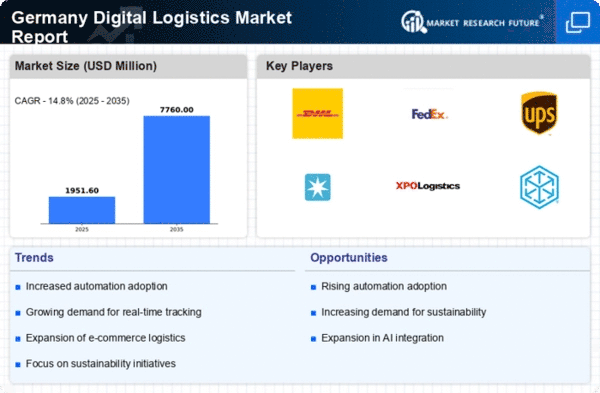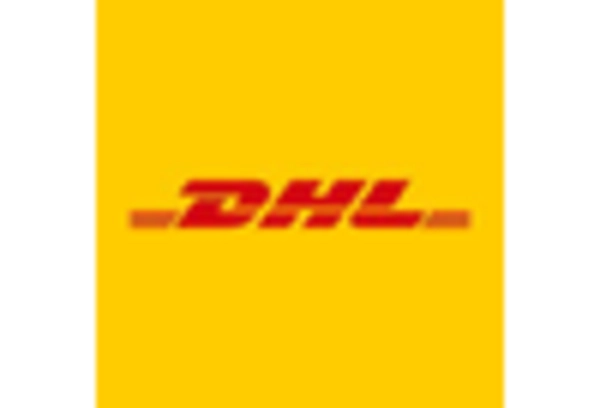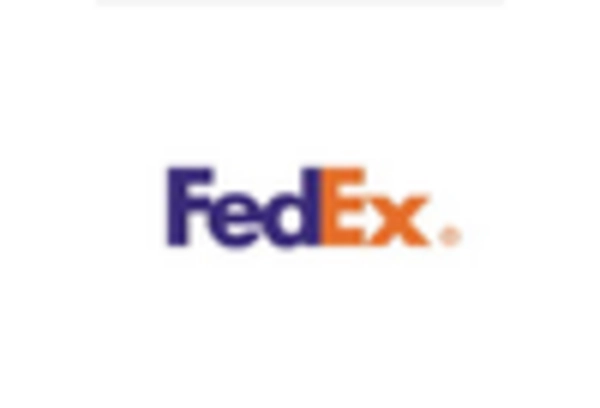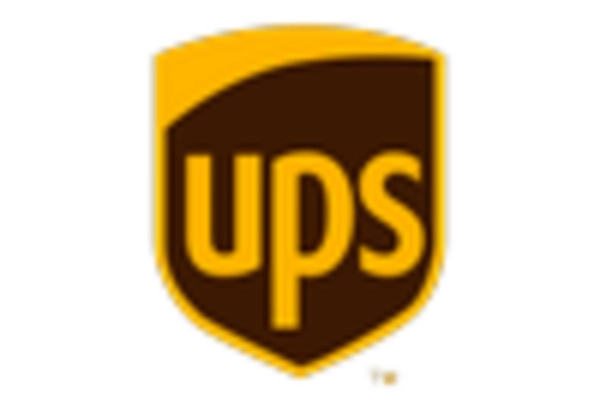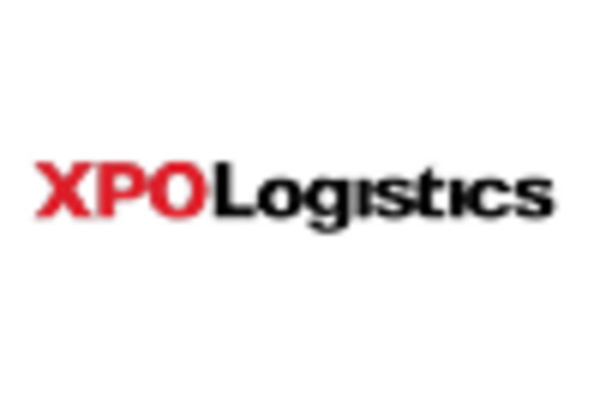Regulatory Compliance and Standards
In Germany, the digital logistics market is shaped by stringent regulatory compliance and standards. The European Union's regulations on data protection, such as the General Data Protection Regulation (GDPR), require logistics companies to implement robust data management practices. Compliance with these regulations not only ensures legal adherence but also builds consumer trust. Additionally, environmental regulations are pushing logistics firms to adopt sustainable practices, which may involve investing in green technologies. As companies navigate these regulatory landscapes, the need for digital solutions that facilitate compliance becomes increasingly critical in the digital logistics market.
Investment in Digital Infrastructure
Investment in digital infrastructure is a key driver of the digital logistics market in Germany. As logistics companies strive to enhance their operational capabilities, they are increasingly allocating resources towards upgrading their digital platforms. This includes the implementation of cloud-based systems, advanced analytics, and integrated software solutions. According to recent estimates, the logistics sector in Germany is expected to invest over €5 billion in digital transformation initiatives by 2026. Such investments are crucial for improving efficiency, reducing lead times, and enhancing customer service. As the digital landscape evolves, companies that prioritize infrastructure development are likely to gain a competitive edge in the digital logistics market.
Technological Advancements in Logistics
The digital logistics market in Germany is experiencing a surge due to rapid technological advancements. Innovations such as artificial intelligence (AI), machine learning, and the Internet of Things (IoT) are transforming logistics operations. These technologies enhance efficiency, reduce costs, and improve service delivery. For instance, AI-driven analytics can optimize supply chain management, leading to a potential reduction in operational costs by up to 20%. Furthermore, the integration of IoT devices allows for real-time tracking of shipments, which is increasingly demanded by consumers. As a result, logistics companies are investing heavily in these technologies to remain competitive in the digital logistics market.
E-commerce Growth and Consumer Expectations
The digital logistics market in Germany is significantly influenced by the growth of e-commerce. With online retail sales projected to reach €100 billion by 2025, logistics providers are under pressure to meet heightened consumer expectations for fast and reliable delivery. This shift necessitates the adoption of advanced logistics solutions, including last-mile delivery innovations and automated warehousing systems. Companies that can efficiently manage their logistics operations are likely to capture a larger market share. The demand for same-day and next-day delivery services is reshaping the logistics landscape, compelling businesses to invest in digital solutions to enhance their service offerings.
Rising Demand for Supply Chain Transparency
The digital logistics market in Germany is witnessing a rising demand for supply chain transparency. Stakeholders, including consumers and businesses, are increasingly seeking visibility into the logistics process. This trend is driven by the need for accountability and the desire to mitigate risks associated with supply chain disruptions. Technologies such as blockchain are being explored to enhance transparency and traceability in logistics operations. By providing real-time data on shipment status and provenance, companies can foster trust and improve customer satisfaction. As transparency becomes a competitive differentiator, logistics providers are likely to invest in digital solutions that enhance visibility in the digital logistics market.


